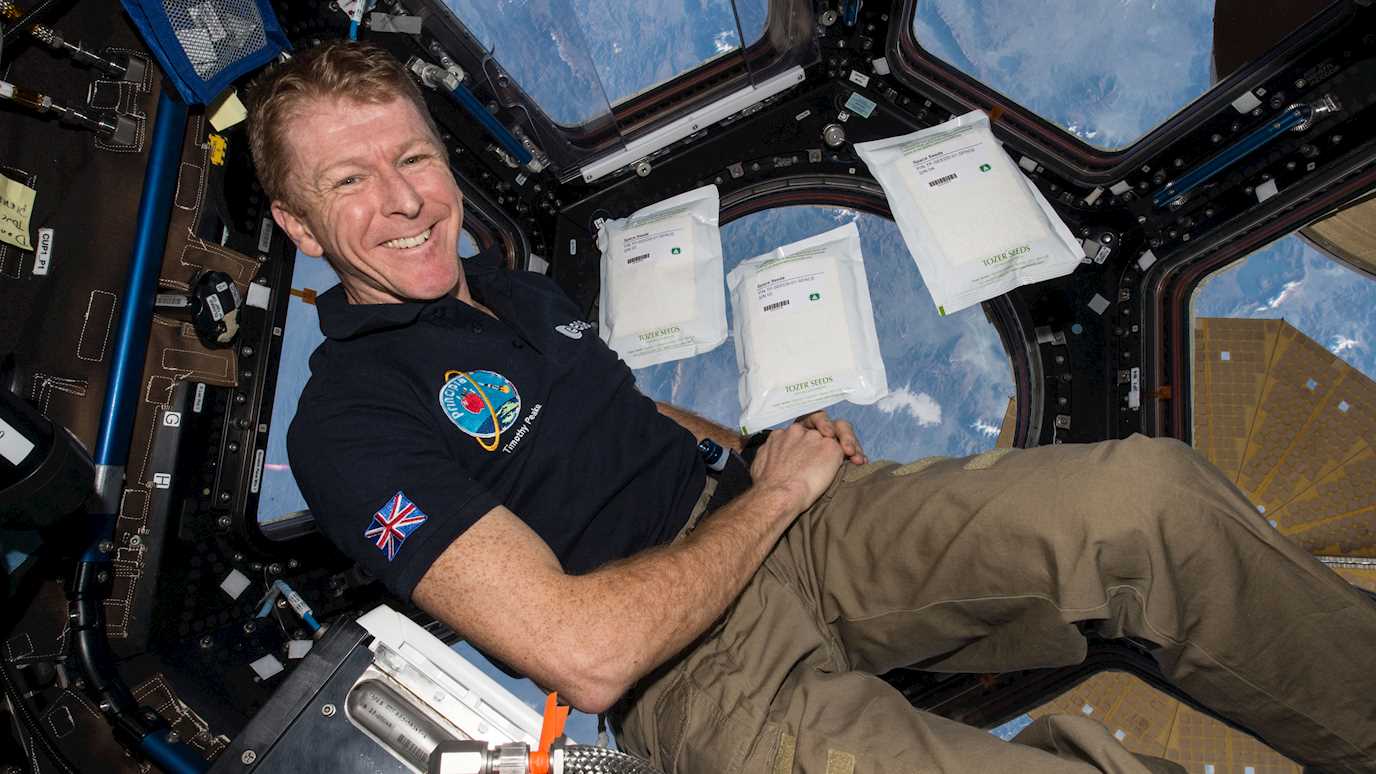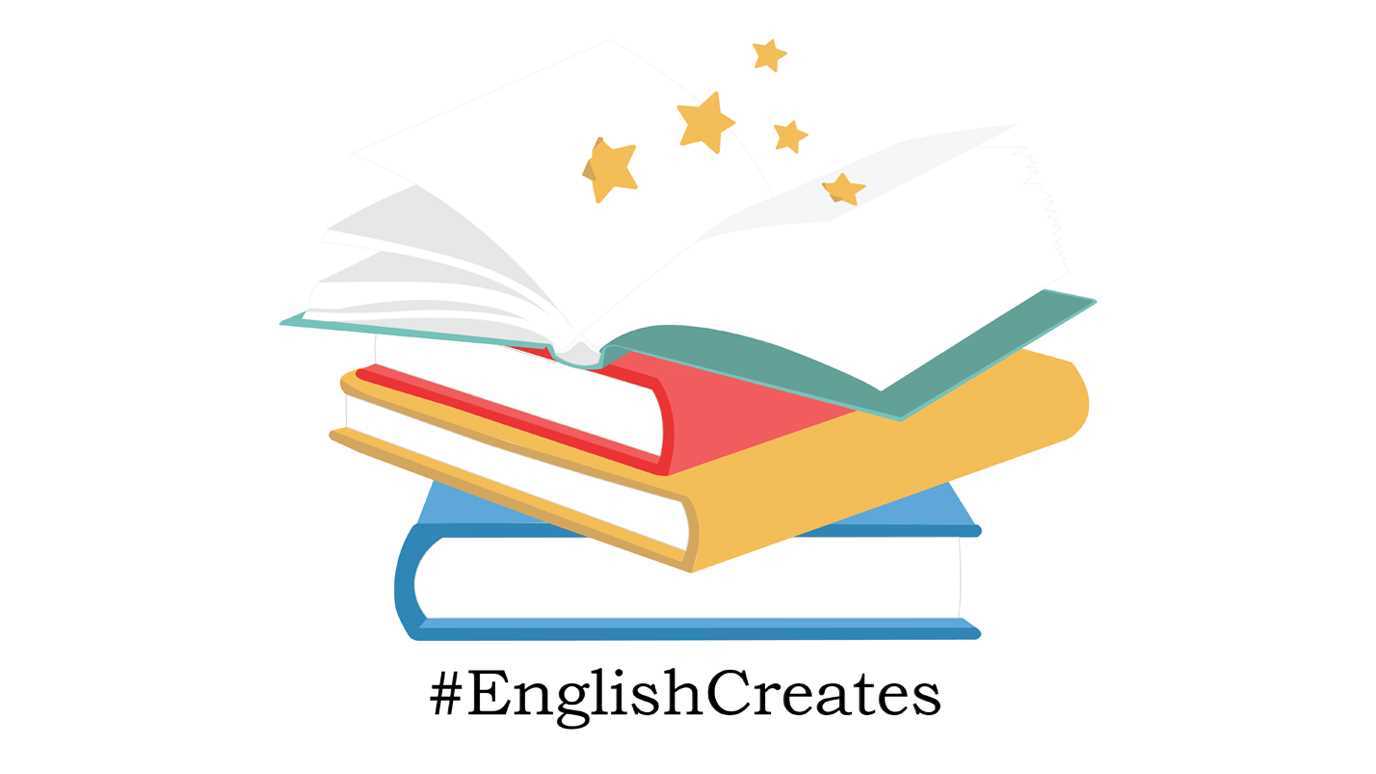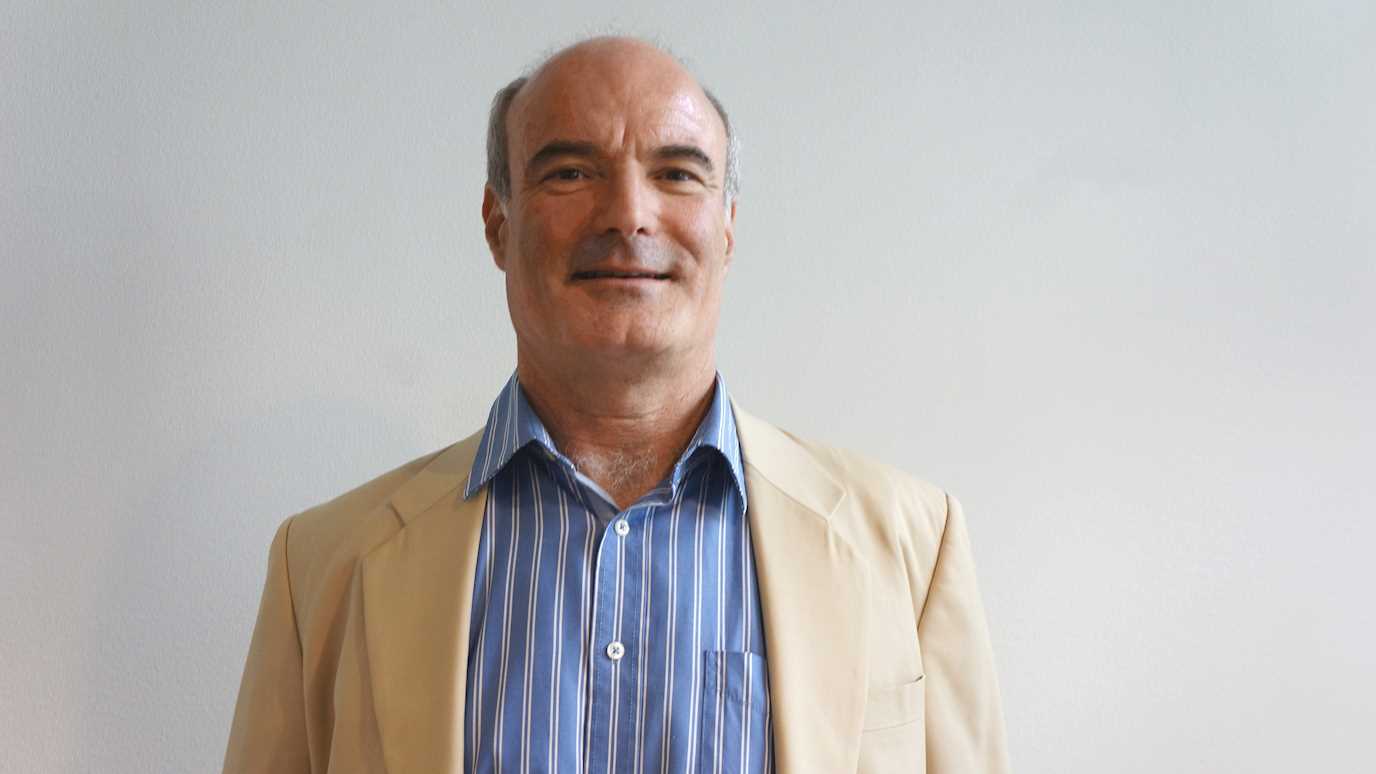A new research paper by scientists from Royal Holloway has found that salad rocket seeds sent to outer space on the International Space Station (ISS), grow only slightly slower when returned to Earth, giving further hope for the future of growing food on another planet.

Major Tim Peake with the seeds on the International Space Station. Credit ESA/NASA
With the futuristic concept of one day being able to live on another world, 2kg of rocket seeds spent six months on board the ISS with British European Space Agency (ESA) astronaut, Tim Peake, as part of his Principia mission.
When the seeds returned to Earth, 600,000 children from schools and groups across the UK took part in an experiment to grow the seeds and monitor their growth alongside seeds that had remained on Earth. This was part of a project called Rocket Science, led by the Royal Horticultural Society’s (RHS) Campaign for School Gardening in partnership with the UK Space Agency, who developed the idea to send the seeds into space.
Professor Gerhard Leubner and Dr Jake Chandler, both from the Department of Biological Sciences at Royal Holloway, led the research, along with Professor Alistair Griffiths from the RHS.
Dr Jake Chandler, from Royal Holloway, said: “Transporting high quality seeds to space and beyond will be crucial for growing plants that support human exploration of space, Mars and other worlds.
“Our study found that a six month journey to space reduced the vigour of rocket seeds compared to those that stayed on Earth, indicating that spaceflight accelerated the ageing process.
“Thus, while we should carefully consider protecting seeds from potentially harmful factors including space radiation and mechanical vibration, the seeds remained alive, and the prospect of eating home-grown salad on Mars may be one small step closer.”
British ESA astronaut Tim Peake, added: “In one of the largest and most inspirational experiments of its kind, more than half a million young people collected reliable data to help the scientists at Royal Holloway investigate the effects of spaceflight on rocket seeds.
“When humans travel to Mars, they will need to find ways to feed themselves, and this research helps us understand some of the biology of seed storage and germination which will be vital for future space missions.”
Alana Cama, Schools and Groups Manager at the RHS, said: “The Rocket Science experiment opened a window into space biology and allowed young people to be at the forefront of innovative research.
“This research project did more than just inspire; it furthered our understanding of the challenges around growing plants in unusual environments and the feasibility of growing food on long term space missions in the future. Inspiring a new generation of botanists and biologists will remain a highlight of our mission to enrich everyone’s lives through plants.
“Humanity’s drive and ambition to explore will rely upon thousands of research projects, just like this. The RHS looks forward to supporting and nurturing the talent of our young people in more exciting citizen science projects in the future.”
The whole experiment and research paper investigated the physiological and molecular mechanisms underpinning the spaceflight effects on dry seeds and found that ‘space’ seed germination vigour was reduced, and ageing-sensitivity increased.
However, the spaceflight did not compromise seed viability and the development of normal seedlings, as was discovered when the seeds came back to Earth.
The research paper from Royal Holloway proposes that to maintain the seed quality during long-term spaceflights, additional protection is required. It suggests that the rocket seed ageing during the space travel is mainly caused by exposure to low-level ionizing radiation from galactic cosmic rays, trapped protons, and solar energetic particles, perhaps in combination with mechanical vibration.
The absorbed radiation dose on board the ISS was 100-times more than on the Earth’s surface, and affected the seed transcriptome, germination physiology, and ageing sensitivity.
However, long-distance spaceflights would cause much higher exposures for seeds as well as for humans.
Calculated exposure on a mission to Mars, for example would likely be at least five times greater than that experienced by the rocket seed on the ISS.
In conclusion, with careful consideration of seed material, reducing mechanical vibration, and shielding from space radiation, the goal of growing crops on other planets is achievable. The findings demonstrate the importance of considering seed quality which is not only important in space travel but important for food security in times of climate change here on Earth.
Other partners who worked on the research include University of Marburg and Science and Advice for Scottish Agriculture (SASA) and Tozer Seeds.
A very special live stream Q&A will be happening with Tim Peake, Dr Jake Chandler and Alana Cama on Monday, 18 May 2020 at 11.30am on YouTube. Tune in to find out about the experiment, life in space as an astronaut and the science behind the project.
























